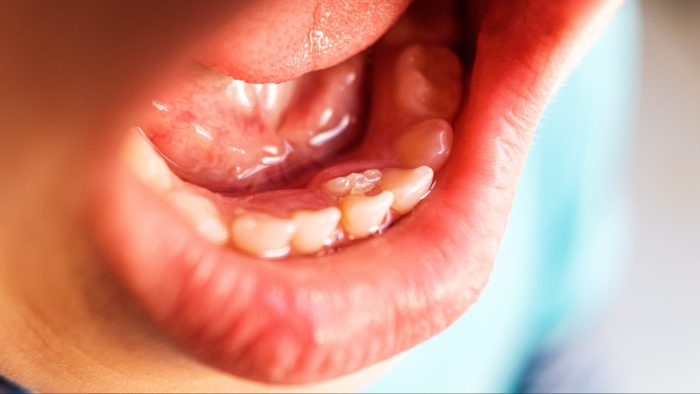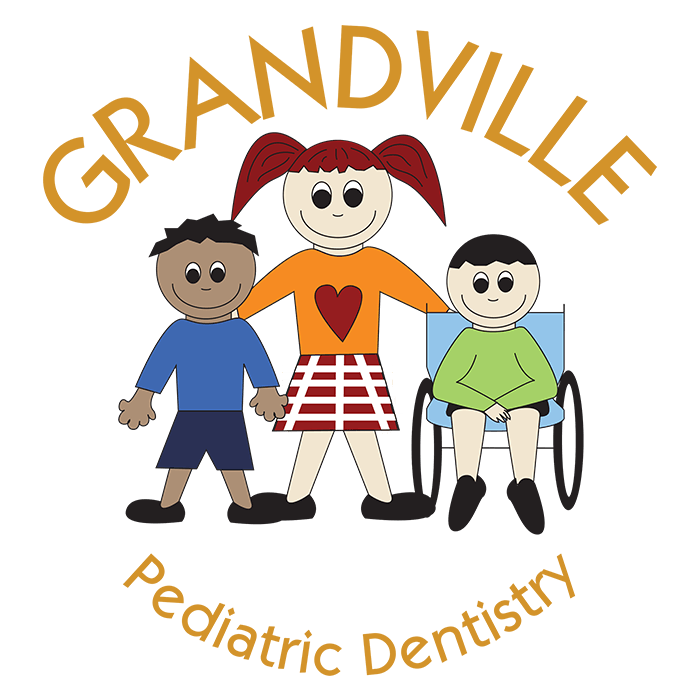What Are Shark Teeth?

Don’t worry, your child is not going to turn into an aquatic predator if one of our Grandville pediatric dentists discovers they have shark teeth! In the dental world, the term “shark teeth” refers to the development of adult teeth behind already existing baby teeth.
This condition gets its name from actual sharks who have multiple (5-15) rows of teeth. In humans, it results in a second row of teeth that otherwise shouldn’t be there. Fortunately, it is a treatable condition in children and our pediatric dentists can advise you on next steps to take after the presence of shark teeth has been established.
Here’s what you need to know about the implications and risks of shark teeth and how we can help ensure the best outcome for your child.
Shark Teeth in Children
If all goes as planned, your child’s adult, or permanent, teeth will start to erupt above the gumline between 5-7 years old. As each tooth appears, it dissolves the root of the baby tooth, pushes it out of the way, and assumes its place. In other words, if a baby tooth starts wiggling, that’s a good thing!
Related Post → What to Do With Loose Baby Teeth: Pull or Not Pull?
However, there are instances where you have the and the baby tooth it’s meant to replace remains. Though concerning to parents, shark teeth are not uncommon and sometimes do not require any additional dental care beyond basic monitoring. Oftentimes, they’re noticed in the lower (front teeth) incisors around age 6.
Less commonly, children can share this condition as late as 11 or 12 which is why it’s important to stay in communication with our pediatric dentists if you’re worried. We can take a look at their mouth and let you know if your child’s first orthodontic appointment may be coming sooner than expected.
When Shark Teeth Are a Problem
Shark teeth start to become a concern when you consider 3 things in particular:
- Timing
- Location
- Pain or Discomfort
If your child has a that refuses to wiggle within 2 months of a permanent tooth appearing, our pediatric dentists may have to step in. We can try to naturally encourage the baby tooth as much as possible, but keep in mind that tooth extraction may be needed.
The location of “shark teeth” can also pose an issue. A tooth coming in behind a molar may cause crowding issues and warrant a trip to an orthodontist. If the best path forward seems like orthodontic treatment, our dentists can help you find a trusted doctor in the area so you can set up an initial consultation for your child.
Has your child mentioned that their baby tooth hurts or they’re experiencing pain beyond a wiggly tooth feeling? If so, feel free to set up an appointment so we can take a closer look and get to the bottom of the issue.
What Not to Do
Though it may be tempting, DO NOT try to help any teeth along by wiggling them yourself. Attempting to pull out a tooth before it’s ready can negatively affect your child’s oral health and may require our pediatric dentists to place a space maintainer.
Learn More → Does My Child Need a Space Maintainer?
It’s important to note that children often don’t notice any symptoms when shark teeth appear. The presence of a second row of teeth is usually painless and doesn’t cause discomfort, making it easy to overlook. However, just because your child isn’t complaining doesn’t mean you should intervene.
In most cases, baby teeth will loosen naturally, even after the adult tooth has emerged. This happens because the tongue gradually pushes the permanent tooth forward into its proper alignment, which eventually forces the baby tooth to fall out. This process often resolves itself without intervention and is part of the natural course of dental development.
The potential problem arises when a baby tooth remains firmly in place for an extended period after the adult tooth has come in. If this happens, it’s crucial to seek pediatric dental care to assess the situation. Delaying action can increase the risk of misalignment or overcrowding, which may require more involved treatment down the line.
In summary, give the situation some time and if the shark teeth don’t resolve themselves naturally, please contact our Grandville, MI, pediatric dental office so we can perform a thorough dental examination.
Our Pediatric Dentists Can Help
Our , want your child to have a happy, healthy smile. Sometimes shark teeth can endanger that reality and other times, they result in no oral health risks whatsoever. If you’ve noticed your child has shark teeth and you’d like a professional opinion on the matter, call Grandville Pediatric Dentistry at (616) 531-3430 to request an appointment.
This blog post has been updated.

